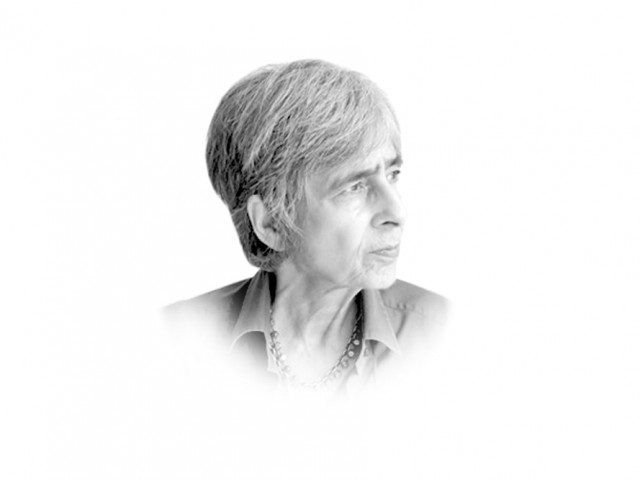Welcome, welcome!
The various hues of leaderships down the years have played havoc with what was, and what is, Pakistan.

National memories are short. When knocking the political classes, it is not only the civilians who play politics; we have had our share of military politicians. The various hues of leaderships down the years have played havoc with what was, and what is, Pakistan. In and out of khaki, they have all started off as the most popular character on the stage, from Ayub Khan downwards. Remember how he was ‘welcomed’ in, and then how things caught up with him, delivery failed, staying power ran out with a run of national disasters, and the inevitable corruption surfaced to the fore.
Yahya Khan was not exactly ‘welcomed’ in but he was far from shunned — and if one talks to old bureaucrats they will admit that during his short stay he did manage to do some good — until, again, his personal failings led him into all sorts of troubles, to his manipulation by the then politicians, uniformed and otherwise, and to the loss of half the country. He died a poor man, probably the last of the leaders not to have robbed the nation.
So Zulfikar Ali Bhutto was ‘welcomed’ in, in a manner subdued given the circumstances. His excesses led to the ‘welcoming’ in of Ziaul Haq, who ‘saved’ the nation from turmoil only to impose a far more dangerous form of moral turmoil that lives on, in healthy mode, to this day.
The yo-yoing couple of the 1990s, Benazir Bhutto and Nawaz Sharif, were ‘welcomed’ in warmly each time they came in and their oustings were taken by all as good riddance. The coming of Pervez Musharraf was hailed and ‘welcomed’ with what is nationally known as zeal and fervour. His rather odious mixture of military and civilian politicians and politics led him to the commitment of unforgivable blunders and an ignominious exit. But his legacy lives with us, the party of the people received its due ‘welcome’ in 2008 after Musharraf and his deals had given us the NRO and Asif Zardari.
So here we all are, bereft of leadership as has been the case apart from short sharp sprints when those ‘welcomed’ in have arrived but not settled — once they settle in, say goodbye to any form of governance or hope. We have nothing actually on the ground in the leadership seats, nobody in sharp suits or beribboned uniforms to whom it is possible to loop up. The main man in khaki politicised himself when heading the ISI as he played the role of chief negotiator of the NRO and his totally irresponsible act of taking on an extension to his tenure, whether at the behest of the US or not, has considerably lessened his standing. And the main man out of khaki — well, does anything more have to be said about him?
The army rule this country through custom — they have always had the upper hand, rich, powerful and united. It all started a long time ago in 1954, when an army chief was installed by a civilian cabinet as the defence minister. Old habits die hard.
Now we have Imran Khan, ‘welcomed’ and hogging the media with a vengeance, having been out in the cold far too long. Politics is far from cricket and to take at face value his intentions towards the army and its brother-in-arms, the ISI, well, without their backing he is unlikely to go far. They have been in the game far too long, making and unmaking. Remember ZAB — he set up the political wing of the ISI, which ultimately did him in by its over-action in the 1977 elections and led him to his downfall.
Published in The Express Tribune, November 19th, 2011.














COMMENTS
Comments are moderated and generally will be posted if they are on-topic and not abusive.
For more information, please see our Comments FAQ